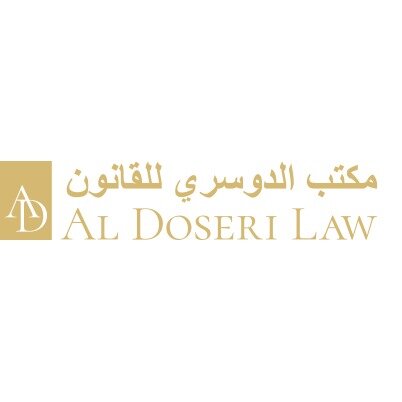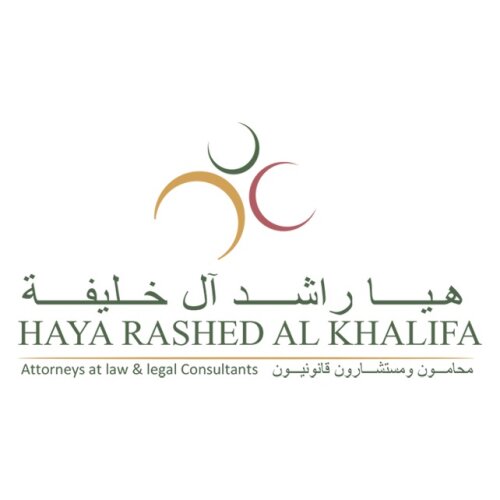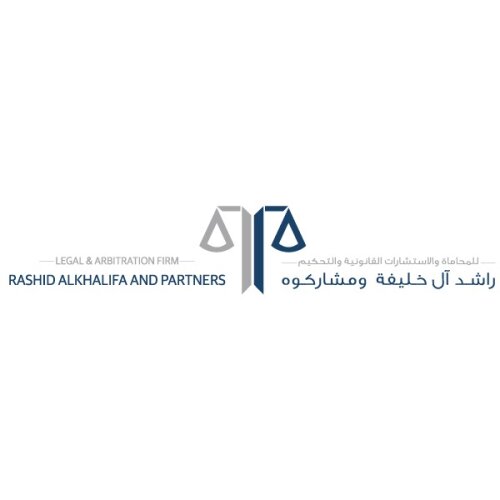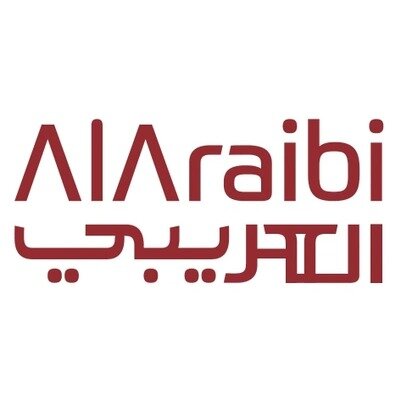Best Natural Resources Lawyers in Manama
Share your needs with us, get contacted by law firms.
Free. Takes 2 min.
List of the best lawyers in Manama, Bahrain
About Natural Resources Law in Manama, Bahrain
Natural resources law in Manama, Bahrain, encompasses regulations and policies governing the utilization and conservation of the nation's natural assets, including oil, gas, minerals, water, and land. Bahrain, with its strategic location in the Gulf, is rich in oil and gas resources, making these crucial sectors of its economy. Legal frameworks are designed to balance resource extraction with environmental preservation and sustainable development. The laws aim to ensure that resource utilization benefits the nation while protecting the environment and community interests.
Why You May Need a Lawyer
There are several situations where legal expertise might be necessary in the field of natural resources:
- Resource Exploration and Extraction: Companies looking to explore or extract natural resources in Bahrain must navigate complex legal and regulatory requirements.
- Environmental Compliance: Ensuring compliance with environmental laws to mitigate the impact of resource-related activities.
- Contract Negotiations: Drafting and negotiating contracts related to resource extraction and management.
- Dispute Resolution: Addressing disputes over resource ownership, land use, or environmental damage.
- Legal Compliance and Licensing: Obtaining necessary permits, licenses, and adhering to local laws.
Local Laws Overview
Key aspects of natural resources laws in Manama, Bahrain include:
- Oil and Gas Regulation: The government controls the exploration and extraction of oil and gas while working with international partners under strict licensing agreements.
- Environmental Protection Law: Laws set forth regulations to minimize environmental impacts from resource-related activities, ensuring sustainable use and conservation.
- Land Use and Rights: Legislation defines land use rights, including zoning and allocation for resource extraction activities.
- Water Resources Management: Laws outline usage rights and conservation measures to protect Bahrain's limited water resources.
Frequently Asked Questions
What sectors are most affected by natural resources law in Bahrain?
The oil and gas sector is the most affected, along with industries involved in mineral extraction, water resource management, and land development.
What are the prerequisites for foreign companies to participate in Bahrain's resource extraction industry?
Foreign entities must comply with Bahrain's investment laws and obtain the necessary licenses and permits from governmental bodies like the National Oil and Gas Authority.
How does Bahrain address environmental conservation in resource-related projects?
Bahrain enforces strict environmental protection regulations and assessment procedures to minimize the ecological impact of development projects.
How long does it take to obtain a resource extraction license in Bahrain?
The timeline varies depending on the complexity of the project and compliance with regulatory requirements, typically ranging from several months to over a year.
Can disputes over resource extraction be settled outside of court?
Yes, disputes can be resolved through arbitration or mediation, which are often quicker and more cost-effective than court proceedings.
What role does the government play in the management of natural resources?
The government plays a central role, setting policies, issuing licenses, and ensuring compliance with regulations to balance development and sustainability.
How are land use disputes related to natural resources addressed?
Such disputes can be resolved through legal channels, including negotiation, mediation, or litigation, based on established property laws and agreements.
Are there any incentives for investing in natural resources in Bahrain?
Yes, Bahrain offers incentives such as tax benefits and streamlined regulatory processes to attract foreign investment in natural resource sectors.
How does Bahrain ensure resource projects benefit local communities?
Laws and policies mandate corporate social responsibility initiatives and community development programs as part of resource project agreements.
What are the consequences of non-compliance with natural resources laws?
Consequences include fines, revocation of licenses, legal sanctions, and potential damage to reputation and investment opportunities.
Additional Resources
For further support and information, consider the following resources:
- National Oil and Gas Authority (NOGA): Responsible for overseeing oil and gas sector regulation.
- Ministry of Oil: Provides information and guidance on energy policies and regulations.
- Supreme Council for Environment (SCE): Monitors compliance with environmental laws and provides assistance on conservation efforts.
- Bahrain Chamber of Commerce and Industry: A valuable resource for businesses navigating natural resources regulations.
Next Steps
If you require legal assistance in the field of natural resources in Manama, Bahrain, consider the following steps:
- Identify Your Needs: Clearly define the legal or regulatory issue you are facing.
- Research Qualified Legal Professionals: Seek lawyers or firms specializing in natural resources law in Bahrain.
- Consultation: Schedule consultations to discuss your case and evaluate potential legal strategies.
- Documentation: Gather all relevant documentation and information pertaining to your case or concern.
- Make an Informed Decision: Choose a legal professional or team that best aligns with your needs and budget to proceed with your case.
- Stay Informed: Keep abreast of any changes in laws and policies affecting natural resources in Bahrain.
Lawzana helps you find the best lawyers and law firms in Manama through a curated and pre-screened list of qualified legal professionals. Our platform offers rankings and detailed profiles of attorneys and law firms, allowing you to compare based on practice areas, including Natural Resources, experience, and client feedback.
Each profile includes a description of the firm's areas of practice, client reviews, team members and partners, year of establishment, spoken languages, office locations, contact information, social media presence, and any published articles or resources. Most firms on our platform speak English and are experienced in both local and international legal matters.
Get a quote from top-rated law firms in Manama, Bahrain — quickly, securely, and without unnecessary hassle.
Disclaimer:
The information provided on this page is for general informational purposes only and does not constitute legal advice. While we strive to ensure the accuracy and relevance of the content, legal information may change over time, and interpretations of the law can vary. You should always consult with a qualified legal professional for advice specific to your situation.
We disclaim all liability for actions taken or not taken based on the content of this page. If you believe any information is incorrect or outdated, please contact us, and we will review and update it where appropriate.
















